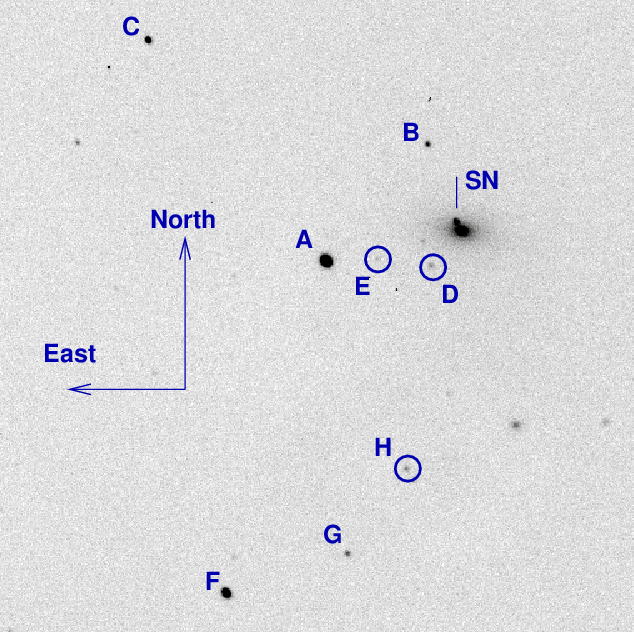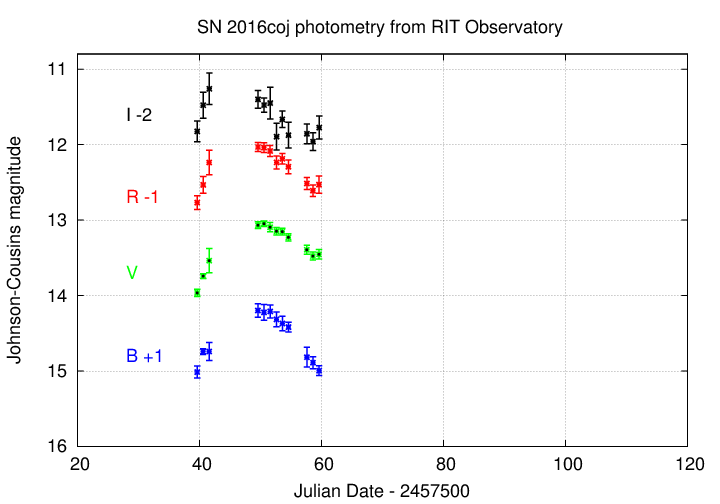
On the night of Jun 19/20, 2016, I observed SN 2016coj in NGC4125. I also took some images of the calibration field PG1657+078, but they suffered from the bright moon.
The main setup was:
Notes from the night
SN 2016coj is a Type Ia supernova in the relatively nearby galaxy NGC4125. It was discovered by the KAIT group some time before maximum light:
NGC 4125 RA = 12:08:05.7 Dec = +65:10:30 (J2000)

The AAVSO sequence team kindly provided photometry for stars near this object. You can see their full photometric sequence on their website. Below, I show only the members of that sequence which fall into my very small field of view -- taken from AAVSO sequence X16266F.
letter B sigB V sigV R sigR I sigI ------------------------------------------------------------------------ B 15.198 0.086 14.133 0.052 13.627 0.116 13.155 0.156 C 13.317 0.093 12.673 0.058 12.316 0.121 11.980 0.161 -------------------------------------------------------------------------
I took sets of 10-20 images in each filter, attempting to guide. I discarded any trailed images.
As explained in the notes to Jun 14, 2016, I used the "rotsub" technique to remove the galaxy's light at the position of the SN.
Using aperture photometry with a radius of 3 pixels (radius of 4.1 arcsec), I measured the instrumental magnitudes of a number of reference stars and the target. Following the procedures outlined by Kent Honeycutt's article on inhomogeneous ensemble photometry, I used all stars available in each image to define a reference frame, and measured each star against this frame. I used the interim reference magnitudes above plus color terms which I am currently revising -- so please treat these results as preliminary to convert the ensemble instrumental magnitudes to the standard Johnson-Cousins BVRI scale.
Results from this evening are:
filter mag mag_uncert Julian Date
SN B = 13.996 +/- 0.064 (ens 0.050 zp 0.040) 2457559.61730
SN V = 13.454 +/- 0.063 (ens 0.029 zp 0.056) 2457559.60648
SN R = 13.530 +/- 0.114 (ens 0.030 zp 0.110) 2457559.59631
SN I = 13.774 +/- 0.152 (ens 0.059 zp 0.140) 2457559.63261
Note the larger uncertainty in I-band, due mostly to the difficulty of subtracting the galaxy's light.
Below is a preliminary light curve, based on RIT Observatory measurements.

Last modified 06/21/2016 by MWR.